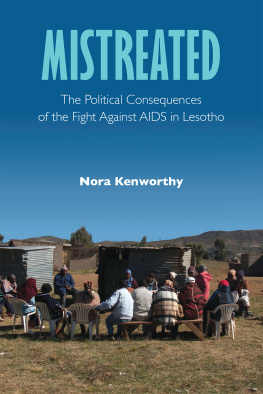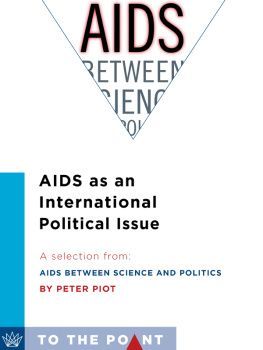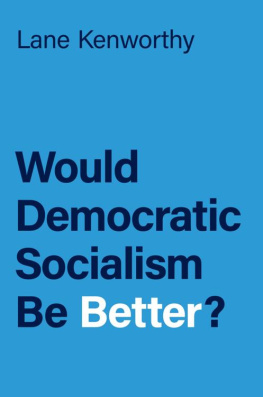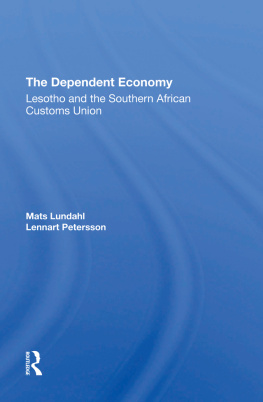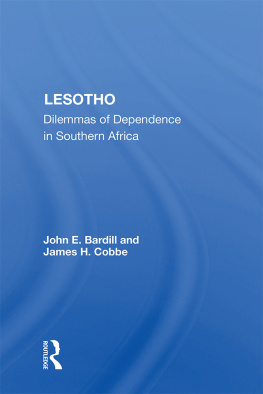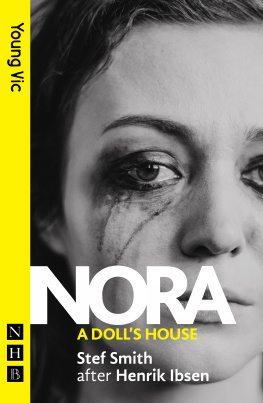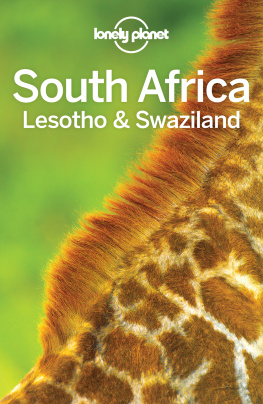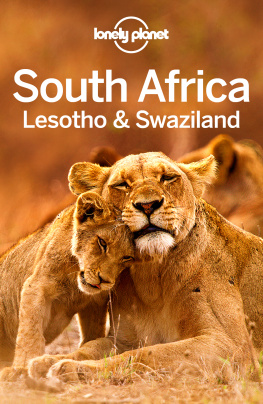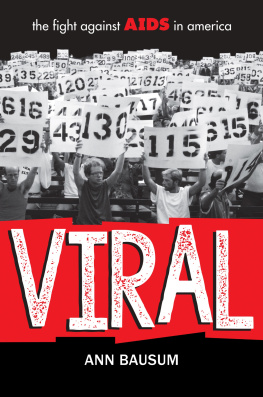A book, especially a first book, accrues a profound debt of gratitude that cannot be fully repaid. I owe boundless thanks to the many extraordinary people in Lesotho whose lives informed this project for nearly six years. As I carried out this research, they treated me with a respect, generosity, humility, honesty, and patience that far exceeded what I deserved. What I have learned of these characteristics, I have tried to apply in my recounting of their stories, lives, and experiences. Any failures in doing so, any unintended misrepresentations or errors, and all opinions included herein are my own, and for them I take full responsibility.
I owe particular thanks to the support groups and clinics, as well as research informants and institutional partners, who hosted me for long periods of time, tolerating my questions and disruptions. There will be too many names left out of these acknowledgments because of the need to protect identities with pseudonyms. Many of those who helped the project took risks to do so, and to them I am especially indebted. Kea leboha haholo, bo-mme le bo-ntate.
The woman I call Lebohang in this text was one of my first and closest friends, and my primary language teacher. Lebohang passed awaypainfully, and far too soonin December 2010. To her family, I hope this work serves, in some small way, as a memorial to her work and the generosity with which she approached the world.
A few research assistants worked on this project over the years. Ponto Tseounyane was an extraordinary help in data gathering, translation, and interviewing. Sabina Monti and Thabo Liphoto assisted in the research for shorter but no less crucial periods of time. I am indebted to them for their insights, but must underscore that any political opinions or critiques are entirely my own. Though she is far more an expert than an assistant, MaOxford Lerotholi provided an essential review of the manuscript in the later stages of writing. I am thankful to her keen eye.
The faculty and staff of the Institute of Southern African Studies (ISAS) at the National University of Lesotho (NUL) provided a much-needed academic home during 20102011, and my colleagues there guided the research in innumerable ways. I am particularly thankful to Drs. Resetselemang Leduka, Setsabi Sestabis, and Mateliso Mapetla, as well as NUL colleagues Amelia Ranotsi and James Molapo. Further afield, Alan Whiteside provided essential feedback on portions of the manuscript. Early on in the research process, Nicoli Nattrass, Jeremy Seekings, Mokhanto Makoae, Stephen Rule, and David Turkon helped orient me to the region and to Lesotho. In 2014, Annali Fichardt warmly welcomed me into her home, and other faculty and postdoctoral fellows at the University of the Free State gave generously of their time and insights on the project.
The research also benefited from numerous connections with organizations, agencies, and institutions in Lesotho and South Africa, including IDASA, MSF, TAC, FIDA, NAC, HEARD, LENEPWHA, LECAWU, FAWU, the Transformation Resource Center, the LCN, M2M, the Lesotho Consumer Protection Association, the Office of the First Lady, the Lesotho Planned Parenthood Association, the Clinton Foundation, Management Sciences for Health, BIPAI, CHAL, UNAIDS, WHO, UNDP, USAID, and those involved in the Health Development Partners Forum. Partners and friends at ALAFA, GTZ (GIZ), the Ministry of Local Government and Chieftainship, and ICAP provided essential and unwavering support at various stages of the research process. To those individuals at these organizations who gave so freely of their time and expertise, I am particularly thankful. I am also grateful to the Lesotho Ministry of Health and Social Welfare for granting permission and ethical approval for this project to be carried out.
As someone who has not always felt comfortable in academic settings, one of the most unexpected and deepest joys of academic life has been finding a network of wonderful colleagues, mentors, and friends. The Department of Sociomedical Sciences at Columbia University nurtured my work from the beginning, giving me the confidence to shift disciplinary boundaries and pursue this project as an ethnography. For that, as well as his unwavering support, patience, and kindness, I am especially indebted to Richard Parker. One could not ask for a more brilliant or generous mentor. Ron Bayer was a steadfast presence throughout my time at Columbia, and lent his expertise in the history and politics of the HIV epidemic to many iterations of this project. Kim Hopper first introduced me to rigorous ethnographic methods, and then patiently mentored me through not one but multiple research projects. His mantra to trust the method got me through fieldwork; his craftsmanship as a writer helped me translate field notes into chapters. I was deeply honored that Rosalind Petchesky and Mamdou Diouf also provided extensive feedback on chapters throughout the process; their unique perspectives have shaped much of this work. Also at Columbia, I am indebted to Wafaa El-Sadr, Jennifer Hirsch, Connie Nathanson, and Carole Vance, as well as many other faculty for their mentorship and support. At ICAP, Elaine Abrams and Jessica Justman provided support for early work in Lesotho on HIV/AIDS. Finally, I would not have gotten through Columbia without the camaraderie of fellow students I now am lucky to consider professional colleagues. There are too many to mention here by name. Sara Lewis, Anne Montgomery, Brendan Hart, Robert Frey, Brooke West, Allison Goldberg, Radhika Gore, Ashley Fox, Siri Suh, Kirk Fiereck, and Ronna Popkin all provided essential insights and much-needed doses of reality throughout this project.
I consider myself extraordinarily fortunate to have landed in a place as rich in friends and colleagues as the University of Washington. I am particularly thankful to my writing group colleaguesJohanna Crane, Ben Gardner, Danny Hoffman, Ron Krabill, and Lynn Thomasfor the mentorship, feedback, and company needed to finish this manuscript. Johanna Crane also provided extensive edits on various proposals, chapter drafts, and book dilemmas that made me feel all the more blessed to have her as a friend and colleague. Lauren Berliner was an exceedingly supportive friend and partner throughout the last two years of writing. Many other colleaguesincluding David Allen, Charlie Collins, Jody Early, Andrea Kovalesky, Lauren Lichty, Selina Mohammed, Jamie Shirley, Chris Wade, and Mayumi Wilgerodtprovided various forms of much-needed encouragement and mentorship throughout the process. On the Seattle campus, I feel especially lucky to be connected to so many remarkable scholars whose insights and support have shaped this book, including Rachel Chapman, Steve Gloyd, Amy Hagopian, James Pfeiffer, Bettina Shell-Duncan, Matt Sparke, and Janelle Taylor. Finally, I am thankful to my students, especially those in my global health classes who joined me on trips to foundations and organizations in Seattle that informed much of .

